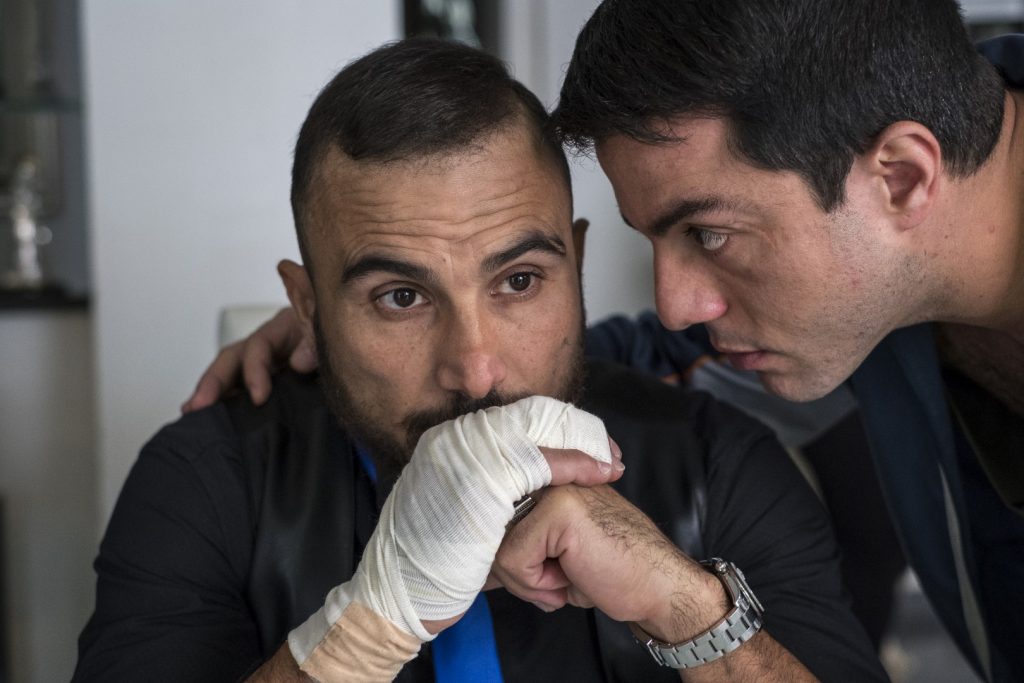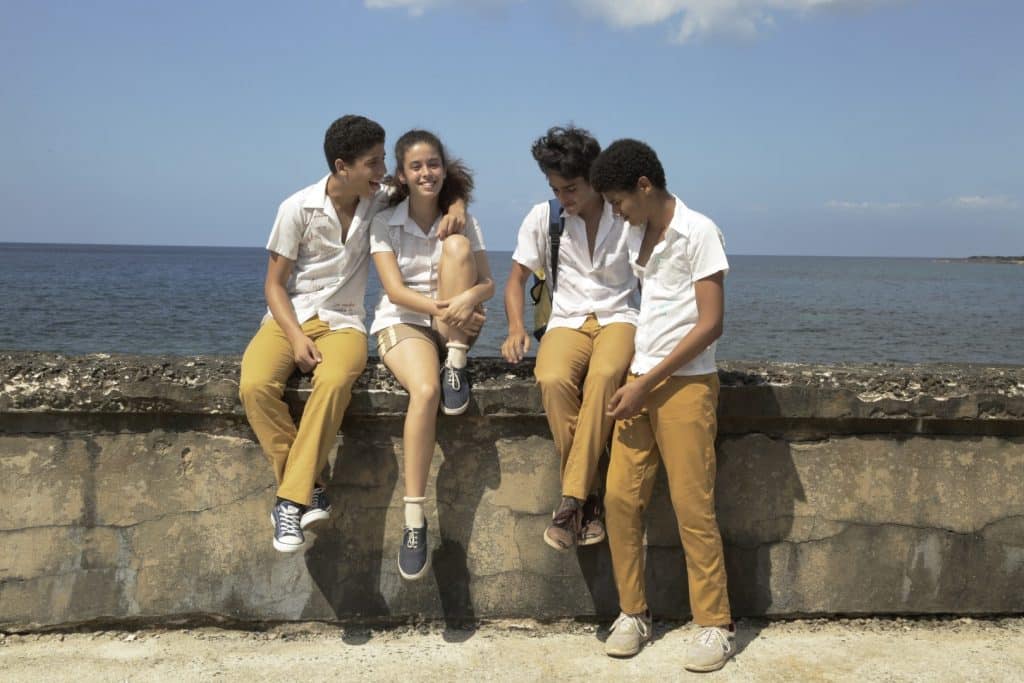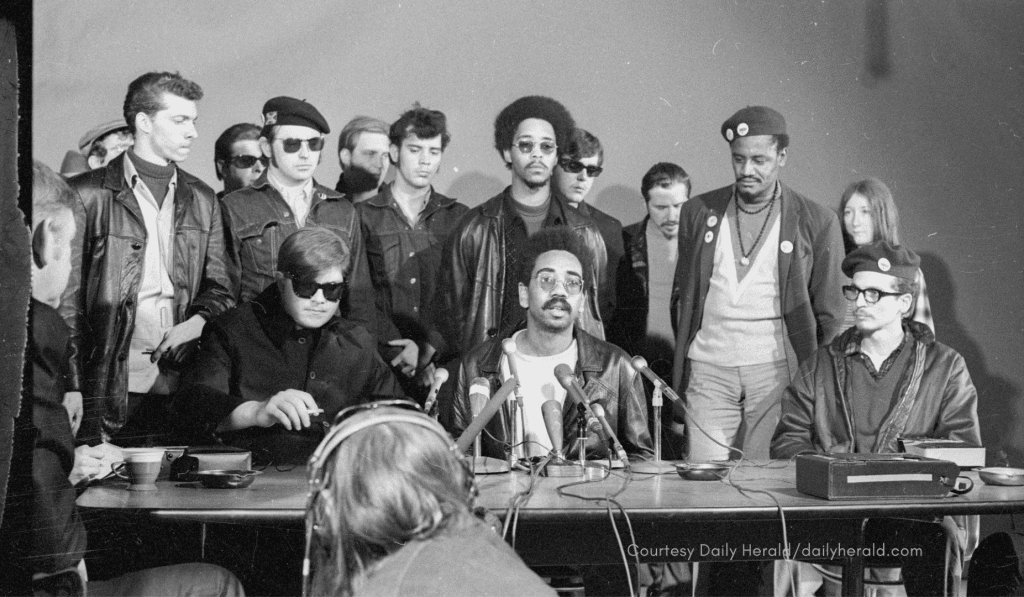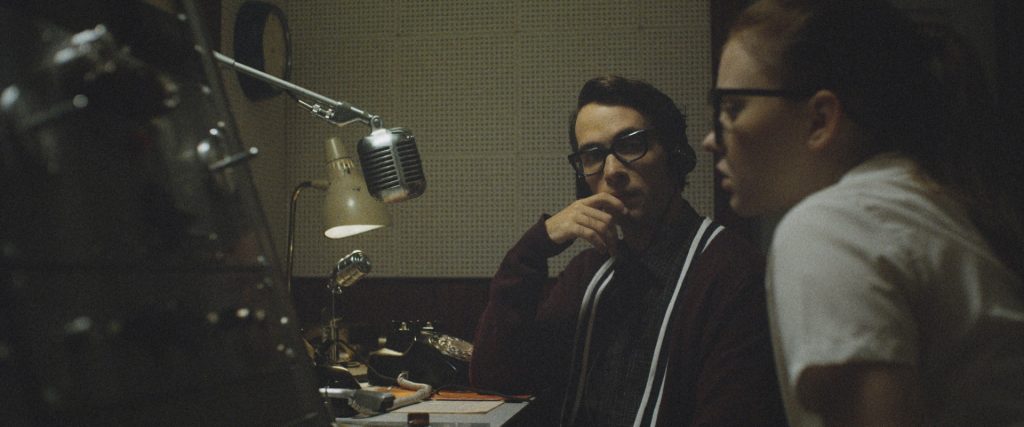Read also:
How to Watch FX Live Without CableHow To Watch AMC Without CableHow to Watch ABC Without CableHow to Watch Paramount Network Without Cable(This dispatch is part of our coverage of the 2019 Chicago International Film Festival.)
Oh, it’s over? I guess it is. After nine days and 38 movies, the 2019 Chicago International Film Festival has drawn its curtains—at least for me. There’s been the good, there’s been the not good, and there’s been the messy. There’s also been more than a few movies that blend all three together, and even if some of the topics had been done before, one thing I hadn’t seen prior took shape in my first screening of the day.

It was Jeanie Finlay’s Seahorse, a documentary that follows something I don’t think I’ve ever seen on the big screen before: the story of a trans man and his journey to carry his own child. Meet Alfred McConnell, an English guy who transitioned in the late 2000s and has since been taking testosterone. He can’t continue doing so if he’s trying to get pregnant, however. He goes cold turkey with the support of his partner, C.J., and thus begins an 11-month odyssey of internal and external examination.
Full disclosure here: I’m not a person who thinks an inherently fascinating story is grounds for a successful feature. As it happens, neither is Finlay. Ethnographic in its tact but transparent in its compassion, her work forgoes self-insertion just as it avoids any sort of concrete agenda. Seahorse is strikingly apolitical despite its progressiveness. “I just don’t want it to be a ‘story,’” Alfred says at one point. And while some news outlets may have made it into one, Finlay is much more interested in gender, be it its limits or its lack thereof.
She succeeds on those fronts, but it also has to be recognized that Seahorse has some jolting shifts in pace and focus that distract from Alfred’s arc. The film makes mention of his relationship with his dad and, when that shows a sense of closure, skims past its implications. The same goes for his relationship with C.J.; some shifts pass too quickly to register, only to clarify themselves later on without much attention. But aside from its narrative shifts and a few extraneous scenes, Seahorse sees below the surface, and it’s affecting as a result.

The next one didn’t do much of anything for me, though. Based on Eduardo De Filippo’s three-act play The Mayor of Rione Sanità, Mario Martone’s adaptation of the same name takes a basic moral quandary and stretches it to its limits. Francesco Di Leva plays Antonio Barracano, the feared and respected Godfather-type of Rione Sanità in Naples. It’s all family and all business for him—you know how this is. Then he’s tasked with help with the murder of his own father.
The play was originally written in 1960, and ostensibly, Martone’s only real stamp in terms of personality is its ostensibly-modern take on it. But is it really modern? Aside from some overlaid rap music that tries too hard, no, but that’s not really the issue. It’s that Martone and co-writer Ippolita Di Majo maintain the scope and fail to translate it to the screen. The direction is involved in its close-ups at the most, sure, but it’s stolid elsewhere. Martone’s sole approach here is to emulate how one would subjectively engage in a stage production, and it gets old fast.
It’s a decent approach in theory. Instead, it dictates the viewer’s emotional involvement minimizes engagement, which isn’t too good of an idea for a story existing in a moral grey area. All the while, as committed as Di Leva’s performance is, it doesn’t have the shades to flesh out the conflict. It all adds up to feel like half an effort stretched out to two un-cinematic hours.

That brings us to August, the feature debut from director Armando Capós. Set during Cuba’s Periodo Especial, Abel Arcos’s script sets its sights on Carlos (Damián González Guerrero), a kid in the early teen years where having peach fuzz on your upper lip is flat-out uncanny. It’s late summer 1994. Radio broadcasts waft through quiet scenes with talks of citizens trying to escape to the United States. Politics are omnipresent but border on the incidental—at least until his friends start to leave him one by one.
Like Minhal Baig earlier in the festival, Capós sets himself as a director to watch for even if he hasn’t totally figured out his craft yet. Quite a bit works here: talks with family, almost-relationships with friends, the development of sexuality without anyone to direct it towards. It by and large feels natural. Better yet, the non-actors downplay some beats’ importance, which makes later developments hit harder in turn. As a look at the time in one’s life when politics seem to matter everyone except you, August is quite accessible.
It’s also very back-heavy, clear in intentions but distancing as well. Much like Carlos, August gets the short end of the stick, trying to establish its handful of relationships despite spending its first half hour (out of just 78 minutes) on setting. Sure, it can play a little slow, but the problem is how Capós and Arcos focus on character or place rather than both at the same time. It’s dichotomous in that sense rather than flowing, and the way Arcos underwrites the supporting characters undermines the flow from communal to solitary.

And back from social realism came another documentary, my last of the festival. It was a short one too; at just 56 minutes, The First Rainbow Coalition zips from 1968 to 2017, starting with late ‘60s gentrification and ending in the present day. It’s also a pretty effective crash course. There’s no fat here, no bones other than its spine. From Chicago segregation to its classist implications to black activism to other races joining in, this is a doc that high school teachers are sure to play in their classrooms for years to come.
And no, that’s not necessarily a bad thing. Is it the entire history? Obviously not. If Rome wasn’t built in a day, the first Rainbow Coalition sure as hell wasn’t built in an hour. Is it too condensed? At points, but it doesn’t turn a blind eye. Ray Santisteban and editor Leah Marino compound economics with class, race, and identity to show how capitalism and its byproducts bind the three together against the latter. Talking heads give way to archive footage and vice-versa, providing for something more professional than a lot of docs that have come and gone.

And that leads up to this: my last movie of the festival is a debut on pretty much every main account. It’s the only thing on its director’s, writers’, and composers’ IMDb pages, and aside from some TV and short film work, its stars are virtually unknown. It’s also an hour and a half—always a plus. Yep, this definitely debuted at Slamdance back in January.
Andrew Patterson’s The Vast of Night takes place in a late-‘50s small town in the American Southwest. The local high school’s basketball game is this evening and everyone’s over there watching it—except for Everett (Jake Horowitz) and Fay (Sierra McCormick), that is. They have to work, the former the town’s radio host and the latter the switchboard operator. Then a strange radio frequency starts interrupting them. But oh, just wait, maybe there’s something deeper to it.
Well, not really. The Vast of Night has a bunch of charades that add up to pretty much nothing, so in that regard, it’s a cop-out. It’s all low-budget style and quick dialogue instead, but what fun that ends up being. James Montague and Craig W. Sanger’s script is really an excuse for an 89-minute diversion, but you know what? It entertains, and it also signals something more to come from its creative team.
What could have come off as halcyon is quite witty instead. Horowitz and McCormick give life to what could have just been Eisenhower-era stereotypes, and the filmmaking, while clear in its low budget, is the work of someone who just really likes making movies. And Patterson’s good at it, too; the long, unbroken takes and invitations to use your imagination are too pure to decry. Even if it means way less than it thinks it does, it’s that old-school wonder that makes you feel like a kid listening to Art Bell clips alone at 2:00 am.
So that’s it, all—at least for me. There are some other movies playing at the festival that I’ve written about at Cannes such as Atlantics and the great Portrait of a Lady on Fire, and the screenings continue all day each day until this Sunday, October 27. I’m done until next year, though. I might even listen to some Coast to Coast AM clips. Who knows. Now go see something good, why don’t you?